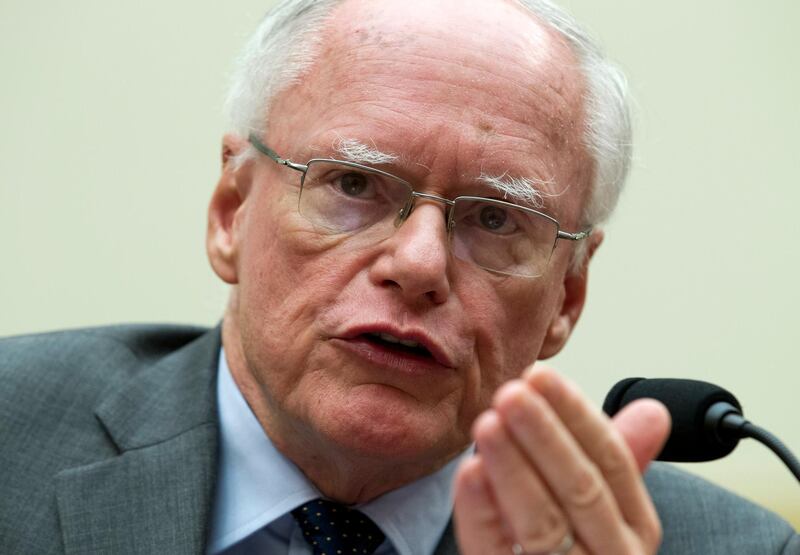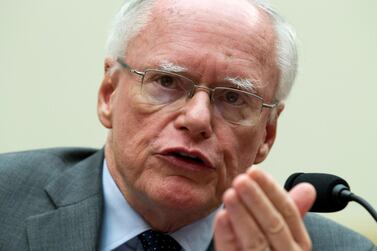Iraq on Monday launched the third phase of a military operation against ISIS sleeper cells in an attempt to secure the vast western desert leading to the Syrian border, according to the military.
Members of the Iraqi army, police and units of the Hashed Al Shaabi, resumed operations of the Victory Will offensive in the eastern province of Diyala and northern province of Nineveh, a military statement said.
Although Iraq declared victory against ISIS in July 2017, the extremists have turned into an insurgency and have carried out deadly attacks across the country. But the group lost the last territory they controlled in Syria in March.
Operation Victory Will was launched in July and lasted for seven days the first time. It aimed to secure the western province of Anbar and the central region of Salahuddin and Nineveh.
"We press on the hands of our heroic forces that we will achieve victory with the will of its heroes against the gangs of ISIS," Iraqi Prime Minister Adel Abdul Mahdi said during a press conference last month.
"May God protect you and make you victorious."
Anger in Sunni areas of Iraq laid the groundwork for ISIS to rise in 2014, when they captured the northern Iraqi city of Mosul. The group's leader Abu Bakr Al Baghdadi would deliver a sermon from the pulpit of the Al Nuri Mosque in the city in which he declared a self-proclaimed Islamic State.
While the Iraqi military and allied militias have spearheaded the defeat of ISIS in Iraq with support from the US-led coalition, the Syrian Kurds were the dominant force in beating the group in Syria, retaking the cities of Raqqa, Kobane and Manbij from the group.
Last week, James Jeffrey, the US envoy to the international coalition fighting ISIS, said that ISIS and Al Qaeda remain a global threat.
Mr Jeffery said that despite losing the once vast territory it held in Syria and Iraq, ISIS risk remained of attacks by underground cells and an expansion of the militants into new areas.
Thousands of the extremist organisation's fighters are scattered around Syria and Iraq, where officials see a "persistent, resilient, rural terrorist level of violence", Mr Jeffrey said at a State Department briefing on Thursday.







